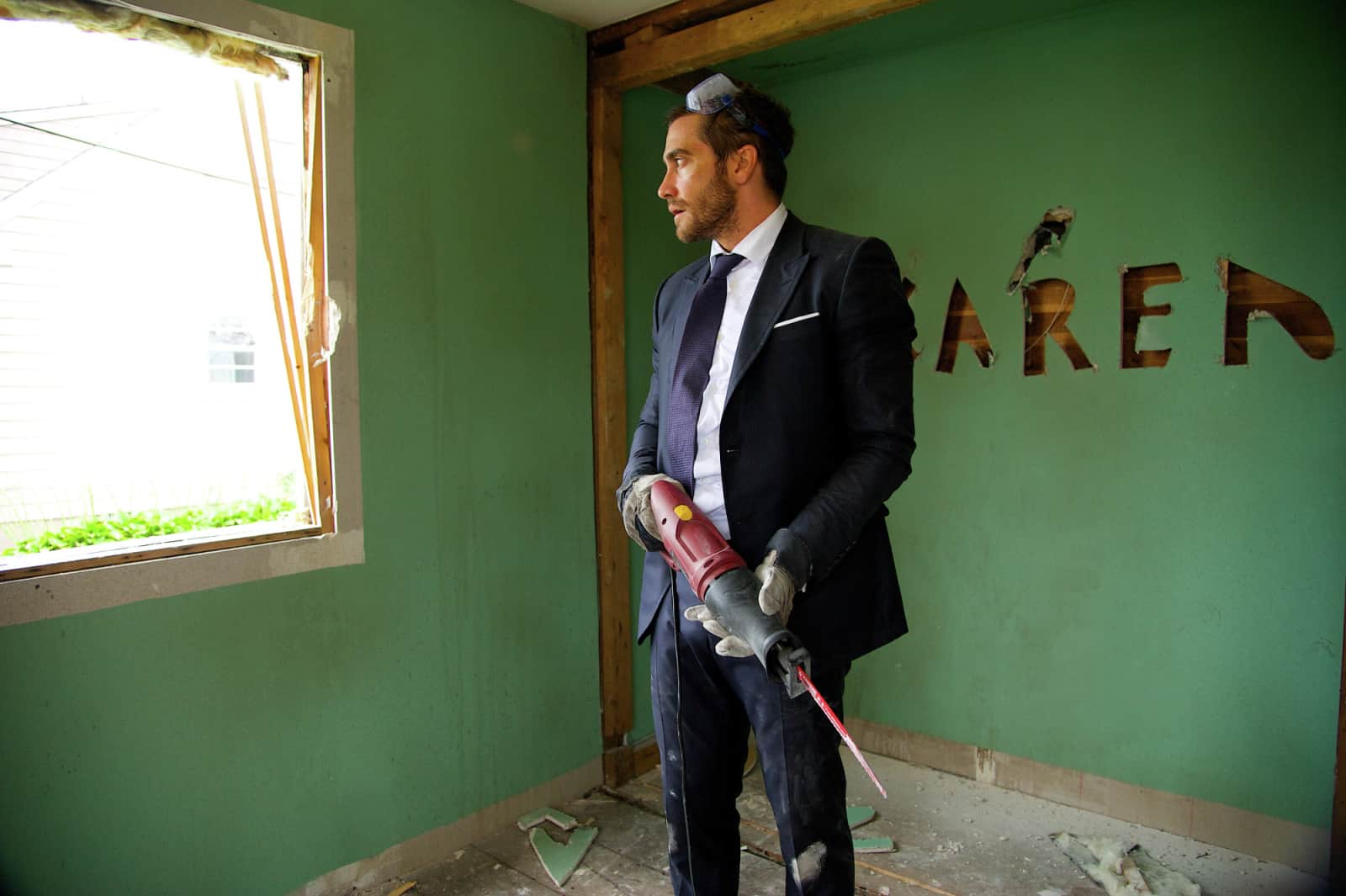Sometimes you have to break something apart in order to understand it. For successful investment banker Davis Mitchell (Jake Gyllenhaal), that something is the death of his wife. In Demolition, the audience follows his search for emotional catharsis as he trades in his briefcase for construction tools, sledgehammers and — in the case of one memorably destructive scene —a loader truck rented from Kijiji.
The theme of reconstructing oneself after cataclysmic loss emerges frequently in Jean-Marc Vallée’s other works: Dallas Buyer’s Club tackled the process of coming to terms with a life-changing illness, Wild portrayed an addict on an 1,100 mile hike of rediscovery around the Mojave in the wake of personal tragedy. Demolition shows a man whose loss of his partner endows him with an insatiable curiosity to make sense of everything around him by, quite literally, taking it all apart.
That being said, these similarities stop there: in terms of tone, Demolition has more in common with the dark whimsy of Vallée’s Café de Flore (2011) and the musical tenacity of C.R.A.Z.Y. (2005) than it does with his other Oscar baited pictures.
The film is most successful in its characters — the actors are talented and capable of projecting nuance onto minimal templates. Gyllenhaal maintains his streak of roles as a dynamic leading man in his portrayal of a Patrick Batemen-esque obsessive; Naomi Watts excels as the magnet that pulls the humanity out of Gyllenhaal’s apathetic demeanour — without pandering to a sexualized stereotype. Perhaps most remarkable is newcomer Judah Lewis, whose angsty performance as the hippy-haired teenage son of Watts, discovering his sexuality, recalls a younger Ezra Miller.
For everything it does right, Demolition traps itself with conventional neatness, especially towards its conclusion. Two poorly executed resolutions dismantle the postmodern quirkiness that sets the film apart from those of its ilk, and Gyllenhaal’s character might prove too cold for some.
Still, for a film that follows the trend of white-collar people looking for a disruption to the numbing monotony of their daily routine, one could do a lot worse. Vallée handles this arc with enough levity that the material doesn’t feel heavy handed or flat. Even in inappropriate moments, the script, by Bryan Sipe, stays playful, and is sure to wring out a laugh from even the most stoic of audience members.


